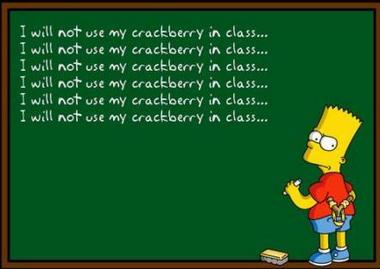The radio audience ratings service RAJAR has published the first full quarter of figures since the launch of a DAB trade-in scheme called ‘Radio Amnesty’, fronted by ubiquitous luvvie Stephen Fry. The aim was to induce households to exchange their FM radios for a DAB radio. The result? DAB’s share of digital listening has fallen for the first time.
Stories
The Google-eyed economy
A new report commissioned by Google, and timed to coincide with the first ever Parliamentary debate on the company today, puts itself and the internet at the heart of the British economy. But it does so by using some creative and interesting definitions.
How NOT to do a music levy
The European Court has upheld the right of copyright businesses in the EU to ask for a ‘private copying levy’, but slapped down Spain for applying it indiscriminately. The Court was hearing a case brought by the Spanish music collecting society SGAE against a storage vendor called Padewan. Spain provides a case study in how … Read more
Nokia ends cruel and unusual ‘Symbian programming’ practices
Nokia has bowed to international pressure and agreed to end the cruel and unusual practice of programming natively for the Symbian OS. It still wants developers to target Symbian, but using the more humane Qt APIs instead.
Nokia has also torn up the OS roadmap, and will speed up the delivery of new functionality to users in chunks, as and when it’s ready, instead of in milestone releases. In less prominent statements, Nokia has clarified what had become a very confusing development picture.
Legal P2P fails (again)
Jim Griffin’s bold plan to take P2P file sharing out of the black economy, and into the one that deals with green folding stuff, flopped because it couldn’t explain to songwriters how they’d get paid.
French taxpayer to subsidise music buyers
The European Commission has approved a French scheme to subsidise music downloads for 15-25 year olds. The taxpayer will contribute €25 per user per year to every “Carte Musique” cardholder, which entitles the user to €50 worth of downloads. The cardholder will stump up the other half of the cost of the card.
The proposal had been pending EC approval, which has now been granted in the name of “preserving pluralism and cultural diversity”.
When Dilbert came to Nokia
You may have had your fill of Nokia analysis and features, but I’d like to draw your attention to one more – one that’s very special. The Finnish daily Helsingin Sanomat has published a report based on 15 interviews with senior staff. It reads like the transcript to an Oscar-winning documentary where the narrative thread is held together entirely by the talking heads.
The report is very long on detail and short on opinionising – and for those of you fascinated by technology and bureaucracy, something quite interesting emerges. What we learn is that the company’s current predicament was fated in 2003, when a re-organisation split Nokia’s all-conquering mobile phones division into three units. The architect was Jorma Ollila, Nokia’s most successful ever CEO, and a popular figure – who steered the company from crisis in 1992 to market leadership in mobile phones – and who as chairman oversaw the ousting of Olli-Pekka Kallasvuo this year.
In Ollila’s reshuffle, Nokia made a transition from an agile, highly reactive product-focused company to one that managed a matrix, or portfolio. The phone division was split into three: Multimedia, Enterprise and Phones, and the divisions were encouraged to compete for staff and resources. The first Nokia made very few products to a very high standard. But after the reshuffle, which took effect on 1 January 2004, the in-fighting became entrenched, and the company being increasingly bureaucratic. The results were pure Dilbert material.
Three things to improve Nokia Design
Rather like the old Soviet Politburo, the goal is internal conformity, rather than exciting and surprising the punter. Read more at The Register
ISPs: beware of paranoid bloggers with a persecution complex, warns Ofcom
 Exclusive Ofcom will encourage ISPs to be transparent about traffic management, but won’t ask them to detail the information in a standard format, according to meeting notes seen by The Register.
Exclusive Ofcom will encourage ISPs to be transparent about traffic management, but won’t ask them to detail the information in a standard format, according to meeting notes seen by The Register.
The regulator is sounding out opinion from ISPs and consumer groups on traffic management, which it sees as the only aspect of the US "Net Neutrality" debates applicable to the UK.
In the US, the debate was politicized and emotive; pressure from left-wing activists attempted to push both Congress and the FTC into passing pre-emptive technical regulations. At the loonier end of the debate, some called for compulsory nationalisation of the private assets, without compensation.
Here the debate is more rational; Ofcom doesn’t agree that pre-emptive rules must be made, and favours a hands-off approach.
Why Android won’t worry RIM and Apple
 My US colleagues are regulars on John C Dvorak’s excellent Cranky Geeks and a highlight of the show. I was recently intrigued to hear the opinion from Vulture West Coast (in Episode 232) that RIM was toast, and Android would triumph. Now, bearing in mind that I’ve been wrong about mobile more than I’ve been wrong about anything else – quite epically and unheroically wrong – I beg to differ.
My US colleagues are regulars on John C Dvorak’s excellent Cranky Geeks and a highlight of the show. I was recently intrigued to hear the opinion from Vulture West Coast (in Episode 232) that RIM was toast, and Android would triumph. Now, bearing in mind that I’ve been wrong about mobile more than I’ve been wrong about anything else – quite epically and unheroically wrong – I beg to differ.
Apple will continue to rule the roost, dictating terms and charging eye-watering prices to punters. The punters will continue to be delighted with Apple, and will clamour for more; while BlackBerry has an ace up its sleeve – probably the biggest mobile sensation of the year.
When the crystal ball lies
But first things first. It’s sometimes useful to revisit why you’ve been wrong, because it can tell you a lot about the future.

